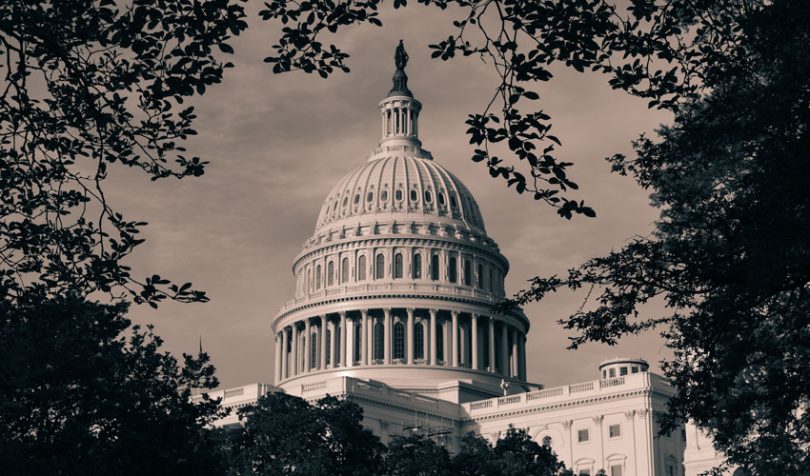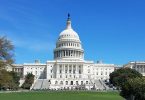Yesterday Reuters reported that an early draft of legislation to stop technology firms providing blockchain based digital currency is being discussed. The draft bill, named “Keep Big Tech Out Of Finance Act”, is supposedly being circulated among representatives by the Democratic majority of the Financial Services Committee of the U.S. House of Representatives.
Update: The discussion draft has now been officially published.
The committee’s definition of a ‘Big Tech’ company is one that earns over $25 billion revenue and mostly provides online services.
The draft proposes that these ‘Big Tech’ firms “may not establish, maintain, or operate a digital asset” that is intended for use as a widespread currency.
It appears that the committee is directly attempting to stop technology companies using cryptocurrencies to become financial institutions. Currently, tech firms are not subject to the regulations that dedicated finance firms must adhere to.
Under this proposal, a large tech firm in violation of the act would be fined $1 million per day.
Through a desire to safeguard consumers, could such legislation protect establishment bankers? Another issue is what does this mean at an international level. It could put large U.S. tech businesses at a relative disadvantage to overseas companies. Although, for now, cryptocurrencies are subject to bans or restrictions in both India and China.
It is safe to assume the draft has been written in response to the recent Libra announcement by Facebook, which fits comfortably into the ‘Big Tech’ definition.
The social media giant released plans for its own blockchain based currency last month. Among the numerous commentators on this announcement, the Financial Services Committee has been perhaps the most damning.
Its 3rd July letter, written by representatives including Maxine Waters, requested a complete halt of Libra’s activities. The committee cited Facebook’s previous controversies with use of private data and the lack of information over how the 28 consensus node running conglomerates would remain impartial.
Yesterday’s article comes just a few days before David Marcus, the CEO of Facebook’s blockchain subsidiary Calibra, will testify in front of the Financial Services Committee. He wrote a public post responding to general criticism of the firm’s plans for Libra and replied directly to the committee’s letter last week.
Marcus will inevitably face some tough questions this week but, if the draft bill gets passed through the House and Senate, this will be least of his troubles.






